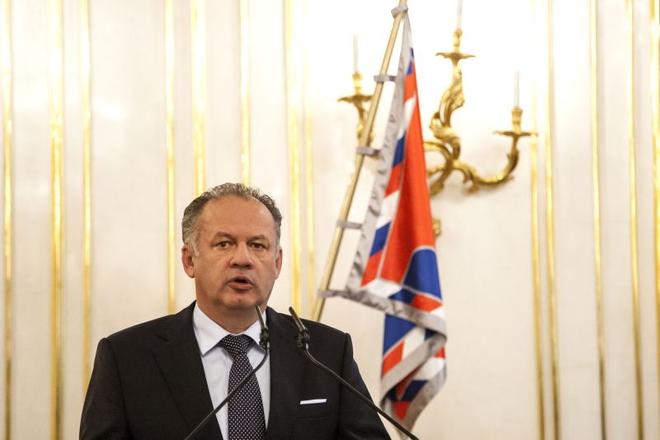LOVE for one’s homeland is a powerful and edifying feeling, Russian President Vladimir Putin said in addressing his nation on the New Year. For him, this feeling manifests itself in what he calls “fraternal support” for the people of Crimea and Sevastopol after they “had firmly decided to return home”.
As the president of a much smaller country which had already experienced an earlier incarnation of so-called fraternal support back in 1968, President Andrej Kiska sees Putin’s feelings through a different prism: “We would surely not agree if anyone decided again – as it happened in the 20th century for Czechoslovakia – to suddenly claim the territory of our country, the Slovak Republic, if foreign armies intruded on our territory.”
These are manifestations of different mental worlds and elsewhere in Europe it was not always clear in which world Slovakia’s heart resided in 2014. Though taking a nation’s cardiogram based on the statements of top representatives may be superficial, we often rely on such superficiality to signal changes in the international scene.
This is one of the reasons why it is so crucial for presidents, prime ministers or others who exercise power to deliver clear messages at the right time, so that their nations are not seen as part of a world where most of the population have never wanted to belong to.
In the past decade, New Year’s addresses were an exercise in words that failed to live up to actual actions and managed to prolong the bitter after taste of Vladimír Mečiar, the former three-time autocratic prime minister.
“The state can be neither better nor worse than we ourselves are,” Ivan Gašparovič, the onetime right-hand man of Mečiar, said in his 2013 New Year address, marking the 20th anniversary of Slovakia’s independence.
Around the time of making this comment he announced that he would not appoint Jozef Čentéš to the post of general prosecutor, despite him having been elected by parliament in June 2011 and the Constitutional Court subsequently confirming the legitimacy of the parliamentary ballot by which he was chosen. Last year, the Constitutional Court indeed ruled that Gašparovič violated the basic rights of Čentéš.
If nothing else, this secures Gašparovič a place in history as the first president ever who was ever found to have violated the rights of a citizen by a court.
When back in 2012, political scientist Miroslav Kusý was asked to comment on the then president’s speech, he said Gašparovič would have surprised Slovaks only if he had said something meaningful. His speeches had a tendency to avoid speaking about important political issues during the era of Prime Minister Robert Fico, to whom he indeed owed his re-election.
On January 1, 2015, Kiska had little trouble outperforming his predecessor. He appealed to fight against corruption, for citizens to demand better-quality administration of the state, and urged support for innovation.
When speaking about Ukraine, he stressed that people must not question the basic principles of sovereignty and self-determination and that Slovakia, through its actions, contributes to a Europe that is, on this fundamental issue, unified.
However, this was Kiska’s first New Year’s address. It may not be so easy to surpass expectations next time.
Time will show to what extent the speech of a politician who is trusted by 70 percent of people is a collection of skilfully stylised slogans and to what extent it represents authentic messages coming from a mental world shared by the entire country.



 President Andrej Kiska (source: Sme)
President Andrej Kiska (source: Sme)